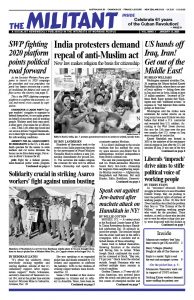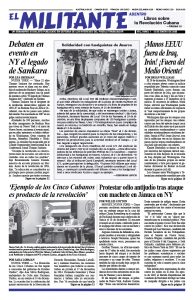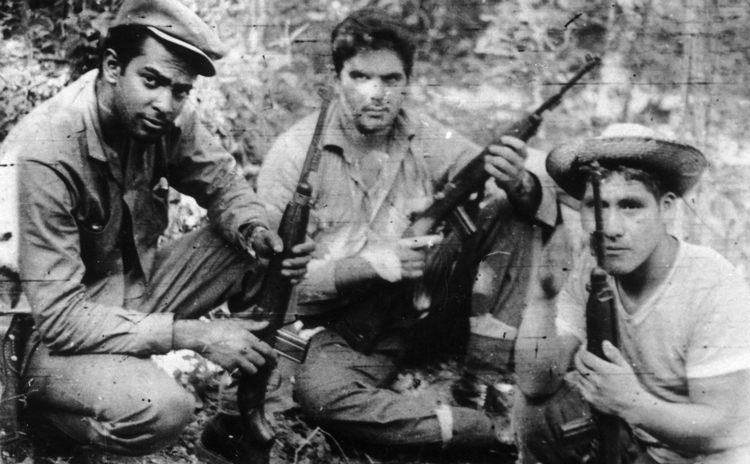Cuban revolutionary leader Harry Villegas died Dec. 29 in Havana, after engaging in more than six decades of struggle against capitalist exploitation, imperialist oppression, and for national liberation and socialism. He is best known for fighting alongside Ernesto Che Guevara in those battles — from Cuba itself; to the Congo in 1965 (when Che gave him the nom de guerre Pombo); to Bolivia in 1966-67.
Villegas was born in 1940 in the foothills of the Sierra Maestra mountains of eastern Cuba. As a teenager he joined the revolutionary struggle against the U.S.-backed dictatorship. In 1957 he became a combatant in the Rebel Army led by Fidel Castro, fighting much of the time in a column commanded by Guevara. After the revolution’s triumph on Jan. 1, 1959, Villegas shouldered responsibilities helping lead factory workers to restructure production in the interests of working people. He returned to active military duty in 1962, later serving in the internationalist missions in the Congo and Bolivia.
From 1977 to 1979, and again from 1981 to 1988, Villegas was part of the leadership of Cuba’s volunteer military mission in Angola, fighting alongside Angolan and Namibian forces in the victorious battle against aggression by South Africa’s apartheid regime and its backers in Washington.
Villegas was a Central Committee member of the Communist Party of Cuba from 1997 to 2011, a deputy of Cuba’s National Assembly, and executive vice president of the Association of Combatants of the Cuban Revolution. Retired from active duty at the time of his death, he held the rank of brigadier general.
Villegas is the author of Pombo: A Man of Che’s guerrilla; Cuba and Angola: The War for Freedom; At the Side of Che Guevara; and co-author of Making History: Interviews with Four Generals of Cuba’s Revolutionary Armed Forces. A coming issue will carry a fuller appreciation of his revolutionary life and work in Cuba and worldwide.



